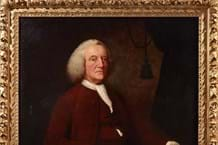St Neots-based decorative antiques specialist Kevin Hairsine, who studied for a qualification in Customs Compliance to Level 3 at the online UK Customs Academy, has developed Hairsines Customs Clearance, which is currently providing general advice for £180 a year.
Shortly, following a series of test runs earlier in the year, the firm will act as a customs agent, providing industry-specific customs clearance services for clients who have difficulties with the new regulations – “whether a weekend flea market enthusiast or a regular importer of stock from the EU”.
“Brexit has definitely created a lot of new paperwork and protocols,” says Hairsine. “I first began to study the regulations as buying in Europe has been an important part of my business for more than a decade. I then talked to a few people in the trade and realised this might be something others would be prepared to pay for.”
Since the UK came out of the single market in January, many traders have found themselves dealing with a complex trade border now subject to tax payments and other formalities. As well as the rules surrounding cultural objects and those subject to CITES controls, all antiques (objects more than 100 years old) and paintings and sculpture are subject to an import duty of 5%, whereas ‘vintage’ items that are less than a century old attract the full 20% VAT rates and some extra import duties.
Hairsine recommends dealers now consider spending more time in Europe while on buying trips to complete all paperwork necessary (including receipts, detailed packing lists, unit weights) or make a Delayed Declaration through an agent that allows for a grace period of 175 days to settle import taxes.
“We are currently working with several customs operators within the EU to enable a smooth EU export process,” he adds. “Clients will be guided on how to give us the relevant information to enable us to submit their customs declarations to HMRC. We will then advise them how to pay any UK tax liabilities due.”
The rules are expected to become more complex from December 31, when the UK introduces full customs controls (some changes were delayed to give businesses time to adjust). Extra red tape next year will come in the form of a Safety and Security Declaration – an early ‘entry summary declaration’ due before goods cross the UK border.
The impact of the new barriers to the trade has already been felt in both directions, although Covid-19 restrictions make this difficult to quantify.














